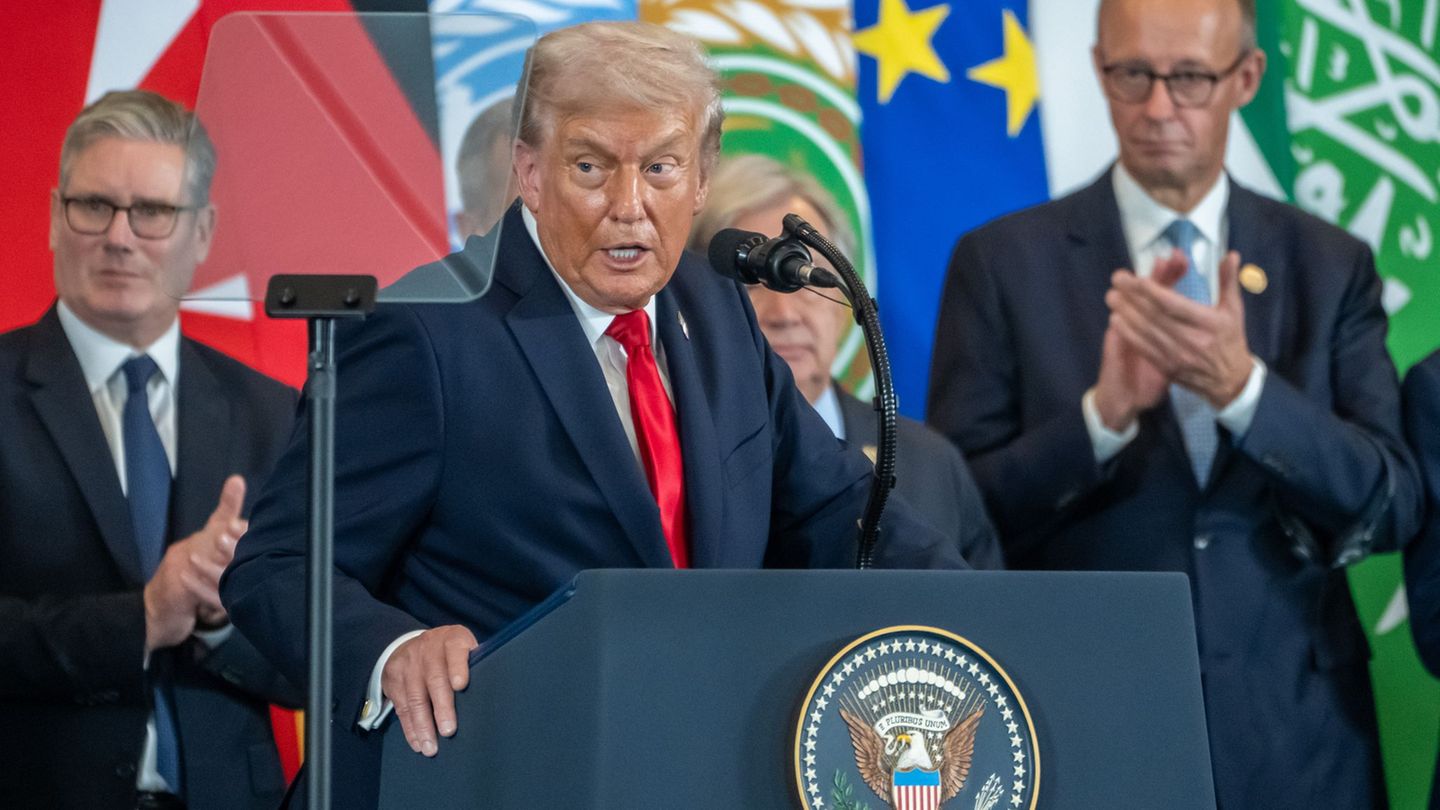Article 124 of the National Constitution provides: “The provinces have the original domain of natural resources.” existing in its territory.” And governors are appealing to him more than ever.
First was Río Negro, with the energy. Let us remember that it all began with the debate over the omnibus law, at the end of January, when the Government threatened a budget cut to the provinces if it was not approved. At that moment, The vice-governor of Rio Negro, Pedro Pesatti, issued a strong warning: “We will have to defend ourselves. We can leave the national government without energy.”
Then, La Rioja announced its decision to issue a quasi-currency, the Debt Cancellation Bonus (BOCADE), which will be released in 40 days, after being approved in January in the province’s Legislature. Likewise, the Riojan governor, Ricardo Quintela, filed a lawsuit in the Supreme Court against the Nation for $9.3 billion from the 2023 Budget owed by the national government in compensation for the sharing point that the district lost when this distribution system was created in the 1980s.
The highest point, until now, of this confrontation between the Nation and the provinces was reached in recent days, due to the confrontation with the governor of Chubut, Ignacio Torres, who threatened to stop supplying oil and gas to the country if the national government does not transfer to the province the funds corresponding to the co-participation that it withheld in recent days. He was supported by several governors in his position.
Not content with this, this Monday, Milei decided to confront another governor, Axel Kicillof, who announced that he will go to court after the government of Javier Milei eliminated by decree the Fiscal Strengthening Fund of the province of Buenos Aires, which had been created during the administration of Alberto Fernández.
An escalation of the conflict could lead to:
More provincial taxes
He director of the Argentine Institute of Fiscal Analysis (IARAF), Nadin Argañaraz, maintains that, “if this conflict continues to escalate, given the changes that are taking place in non-automatic transfers and the fall in co-participation as a result of the Earnings reform, It is likely to result in an increase in the tax burden on the part of the provinces, which could increase Gross Income, for example”. He warns that this goes against the generation of investments and production, so it would negatively affect the national government.
Lack of supply
On the other hand, if this escalation of conflicts does not end here, The provincial leaders could bow to the attitude of Río Negro and Chubut and assert their power as owners of the country’s main natural resources.. That would seriously affect the federal supply of certain basic supplies, such as energy, and could even affect food.
This would result in serious economic damage to the country, in addition to the social conflict that could result from a shortage of fuel and other elements. It happens that Argentina is a country that depends greatly on its entire territorial extension for the generation of foreign currency and the functioning of its economy.
Dollar shortage
According to a study by the Latin American Strategic Center for Geopolitics (Celag), the shortage of dollars in Argentina is the big problem today. “There is an issue of internal restriction. “There is not enough foreign currency to supply the needs of foreign trade, debt payments and the purchase of dollars for savings.”
In this scenario, the Center analyzed the contribution and demand for dollars that each provincial district makes to the national economy. “We consider who contributes and who consumes more dollars,” he tells this medium. Guillermo Oglietti, deputy director of CELAG and doctor in Economics.
The result is surprising: “CABA is the one that consumes the most, it has a foreign currency deficit of almost US$8,000 millionwhile the rest of the provinces are almost all in surplus, such as Santa Fe, Córdoba, Chubut, Buenos Aires, Santiago del Estero, La Pampa, San Juan and Entre Ríos, or very little in deficit (with deficits less than $1,000 million)”, he details.
Dollars: how much each province contributes to the economy
Thus, according to the CELAG, nine provinces have a trade surplus, which together amounts to US$27.5 billion: of which, the first five are Santa Fe, Córdoba, Chubut, Buenos Aires and Santa Cruz and reach surpluses of more than US$2 billion.
Santa Fe, with US$12.1 billion surplus, is the province with the largest surplus and doubles Córdoba, which follows, with US$6.8 billion, while Chubut, Buenos Aires and Santa Cruz report surpluses of US$2.0 billion each. The first three are closely linked to the agro-export and industrial (automotive) sector, while Chubut is linked to oil and gas exports and, in Santa Cruz, mining and oil activity stands out.
Santiago del Estero, La Pampa, San Juan and Entre Ríos also have positive trade balances, although below US$1,000 million and the rest add up to a deficit of US$12,800 million, while the City of Buenos Aires Aires alone “It is the main net consumer of dollars and generates 60% of the deficit,” details Oglietti.
pesos-dolar-bills.jpg
The dollars contributed by each province contribute to reducing the problem on the external front.
Depositphotos
And, with the data on exports from the National Institute of Statistics and Censuses (Indec) and based on an estimate of imports, the report, published in June 2022, revealed “that Santa Fe is the province with the most surplus, while the City of Buenos Aires is the main net consumer of dollars”. And Oglietti clarifies that, although it would be positive to update this report, the contribution structure of the provinces has not changed much to date.
The analyst indicates that one of Javier Milei’s campaign proposals was to eliminate co-participation and, “although it was not clear what his plan was, it was clear that his plan involves violating the federal pact that exists”. And, as was said: the conflict in the Interior and the Nation that reminds us of very ugly times in Argentina, centuries ago.
In a similar tone, Flores points out that “It’s really crazy to get into that logic.”. The public accounts expert clarifies that every distribution system generates inequalities and that there will always be someone with the right to complain.”
Take as an example the fact that The city of Buenos Aires is the one that receives the least resources in relation to what it contributes in fiscal matters (not in dollar generation, as detailed), but it must be taken into account that it has offices of companies that operate throughout the country. and receives taxes because its central office is there. “Therefore, he also receives taxes from what the provinces generate,” he details.
A possible solution to the conflict with the provinces
According to your vision, What we should ask ourselves is where we want to go. “If what we want is for there to be greater fiscal responsibility of the provinces, we must propose measures for that.”. Fiscal responsibility laws can be passed, debt with the National Government can be cut, etc. But, stating that the provinces live off what the nation generates has no basis,” says Flores.
Flores recognizes that it is true that there is overlap of functions between the nation and provinces, but that the current debate is being carried out without any analysis of spending efficiency or overlapping functions. “Cuts are used to achieve a surplus, which implies, at the same time, leaving debts everywhere and non-compliance with legal obligations,” he says.
And consider that one possibility is that, If there are provinces that practically do not generate their own resources, a way could be proposed to reverse that situation, rewarding those provinces that generate their own resources.
“What should be rediscussed, in any case, is what functions the national state, the provinces and the municipalities have to take on and how they are going to be financed.””Flores suggests. But he warns that “discussing everything without an alternative proposal the only thing you do is put into discussion the basis of the functioning of the Argentine system, which is federalism.”
Source: Ambito




